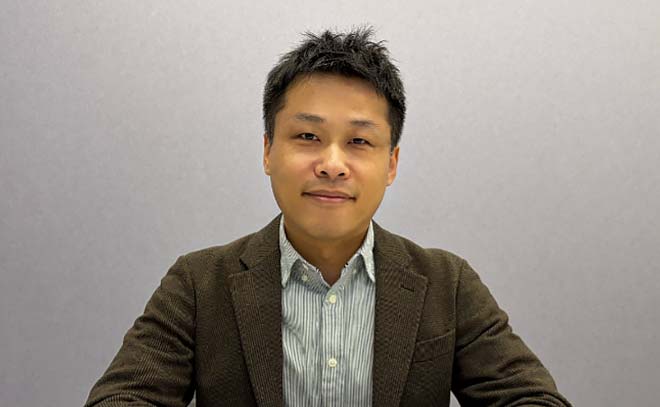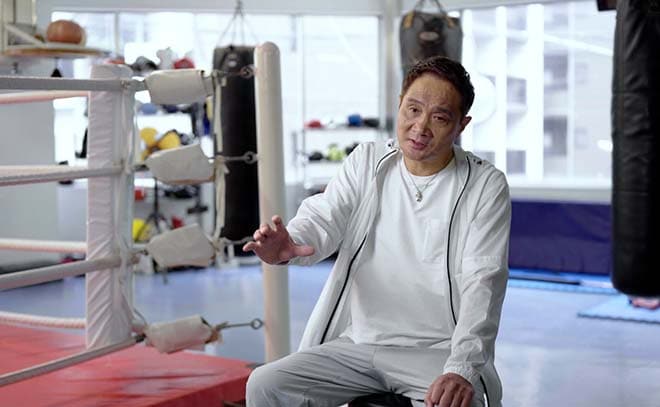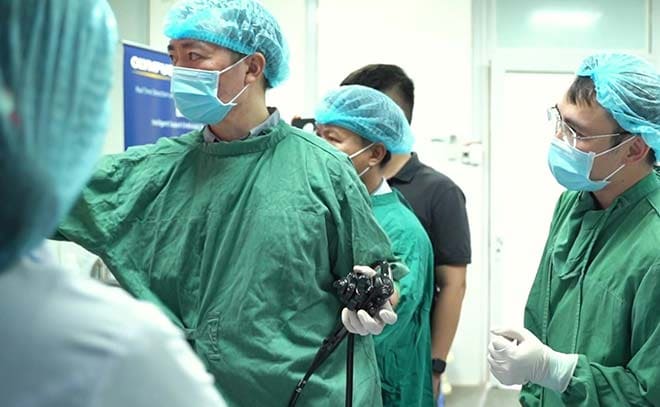Miho Takayama had been dealing with irritable bowel syndrome (IBS) since her late 20s. At age 35, when she underwent an endoscopic examination, polyps were found in her large intestine. Miho, who felt "the importance of being sensitive to changes in one's own body," shared what she keeps in mind on a daily basis.
Diagnosed with irritable bowel syndrome
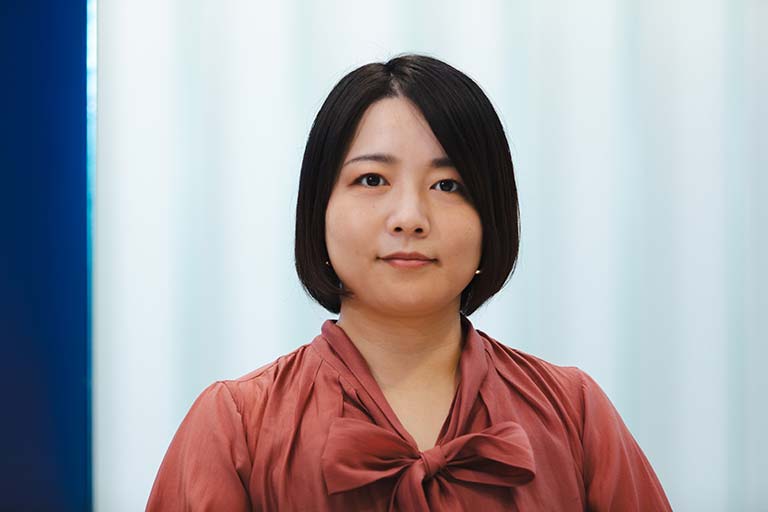
Miho works in the Human Resources Department at Olympus. When she was 28, she noticed something was wrong with her intestines. "I often had to rush to the toilet during my commute or while working due to severe stomach pain."
At first, she thought it was due to overeating or drinking too much. However, as the gastrointestinal problems persisted, she went to have examinations at several hospitals and was diagnosed with irritable bowel syndrome.
Irritable bowel syndrome is a chronic condition characterized by abdominal pain, diarrhea, or constipation, without any specific digestive organ disease. This condition is believed to arise when the sympathetic nervous system becomes overly sensitive to stress and anxiety, while the enteric nervous system (vagus nerve) function decreases.
A key characteristic of this condition is that there is no definitive treatment, and it is typically managed with symptomatic therapy. Miho says "Every morning, I take medication to suppress intestinal activity. Thanks to this, my symptoms are a little more controlled than before. "However, she is not fully cured, and she admits "I still suffer from abdominal pain sometimes."
An "unexpected" colorectal polyp found during endoscopy
At 35, when Miho was busy with her work in human resources and career support, her symptoms worsened despite taking medication. She consulted her doctor and decided to undergo an endoscopy of her stomach and large intestine. During the examination, while discussing with her doctor, she watched the monitor displaying images of her large intestine's mucous membrane captured by the endoscope. Something that looked like a wart appeared on the monitor.
When the doctor said "This is a polyp," she was surprised. "I never imagined that I would have a polyp in my mid-30s." But the doctor calmly said, "Let's remove it," and skillfully excised the polyp.
Realizing the "predisposition to cancer" from family history
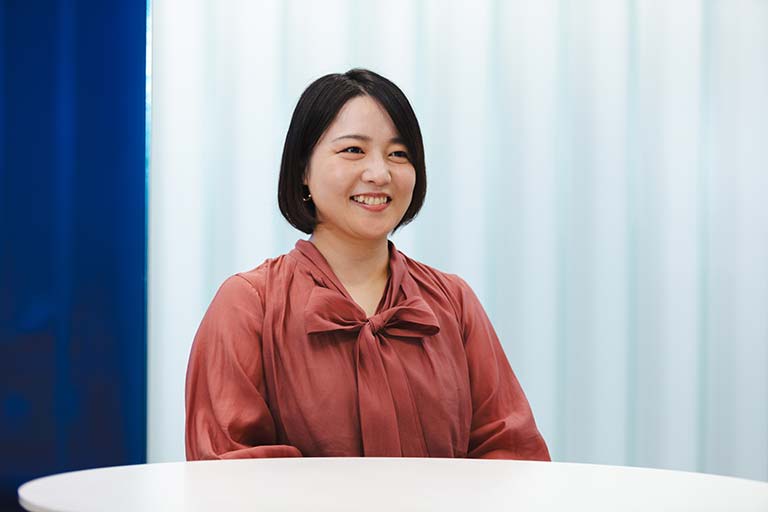
After seeing the polyp in her large intestine with her own eyes, she began to feel anxious thinking "What if this is a cancer...?"
This was because Miho's father had been diagnosed with colorectal cancer eight years earlier and had passed away at the young age of 56.
She reported to her mother that a polyp had been found. Her mother was extremely worried, saying "You have the same constitution as your father."
A week after the removal, Miho was told that the pathological diagnosis results showed the polyp was benign. "I was relieved, but at the same time realized that this wasn't the end," she states. She became strongly aware of her predisposition to cancer and understood the critical importance of not ignoring any changes in her body and seeking medical attention if she felt something was wrong.
"My doctor also recommended that I have an endoscopy of my stomach and large intestine once every two years. I realized anew that I have to deal with my constitution for a long time," she reflects.
Being sensitive to changes in your body
The irritable bowel syndrome that Miho suffers from is also a condition that she must live with for a long time.
"While being mindful of my daily life and managing my bowel condition with medication, I aim for a lifestyle that is low-stress and avoid overwork, to support the function of my vagus nerve," Miho says. Moreover, she is worried about others, thinking "There must be people who have the same concerns as me."
Miho, who thinks "If I had known about irritable bowel syndrome at an earlier stage, it might have made things a little easier," advises others that "it's important to become sensitive to changes in your own body."
Finding a doctor you can completely trust is not easy. With information of varying quality filling the internet, it's crucial to seek diagnosis from a reliable doctor with accurate knowledge and to receive treatment that you can be satisfied with.
Miho explains, "For me, it's essential that the doctor listens attentively to me and explains things clearly, in order that I can understand my condition."
"I want to continue working and do community activities for a long time"
While working in the Human Resources Department, Miho also volunteers in local welfare settings. She has always wanted to be helpful to others, and she studied psychology at a medical welfare university. At work, she uses her knowledge of psychology to provide career counseling to her colleagues.
"I sometimes find it challenging to go to the hospital or undergo endoscopic examinations. However, I want to maintain my health, continue working at the company, and participate in local activities for a long time, focusing on work-life balance and maintaining the balance between sympathetic and parasympathetic nerves. I think that's why I go to the hospital and have regular check-ups."
Miho's journey, from her initial diagnosis to her current lifestyle, underscores what she considers the most crucial lesson: "The importance of taking care of one's own body."
※ This story is based on interviews conducted in September 2024. The conditions, feelings and treatment of each patient may vary from person to person. Please consult your doctor for your diagnosis and treatment.




